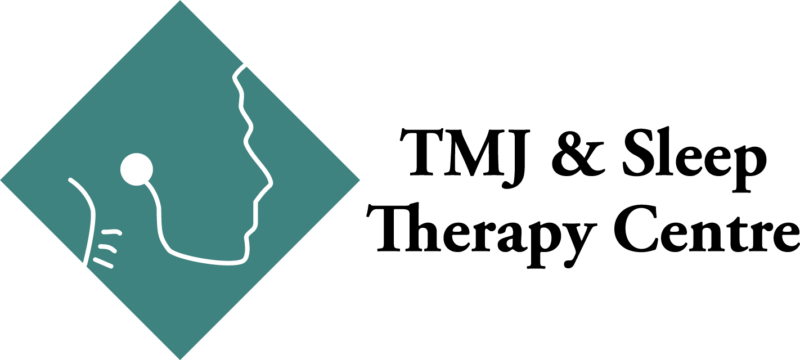How to Know If You Have a TMJ Disorder: Signs You Shouldn’t Ignore
Do you wake up with jaw pain or tightness? Hear clicking when you chew? Feel tension in your face or experience unexplained headaches? These could be signs of a TMJ disorder, a common but often misunderstood condition that affects the joints connecting your jaw to your skull.
At TMJ & Sleep Therapy Centre Indiana, we specialize in diagnosing and treating TMJ dysfunction with non-surgical, personalized care. In this post, we’ll help you recognize the symptoms of TMJ disorders, understand what causes them, and know when it’s time to get help.
What Is a TMJ Disorder?
Your temporomandibular joints (TMJs) are the small, complex joints on each side of your face that connect your lower jaw to your skull. These joints allow you to speak, chew, yawn, and move your jaw in multiple directions.
A TMJ disorder (also called TMD) occurs when these joints, or the muscles and ligaments around them, become inflamed, strained, or misaligned—leading to pain, dysfunction, and other widespread symptoms.
Common Signs and Symptoms of TMJ Disorders
Because the TMJs are closely connected to your facial muscles, nerves, ears, and neck, TMJ dysfunction can cause a wide range of symptoms, including:
✅ Jaw Symptoms
- Pain, soreness, or tension in the jaw
- Clicking, popping, or grinding sounds when opening or closing the mouth
- Jaw locking (open or closed position)
- Limited range of jaw movement
- Fatigue or discomfort when chewing
✅ Head and Facial Symptoms
- Frequent headaches or migraines
- Pain or pressure behind the eyes or cheeks
- Facial tenderness or swelling
- Earaches or a sensation of fullness in the ears (without infection)
- Tinnitus (ringing in the ears)
✅ Neck and Shoulder Symptoms
- Neck stiffness or pain
- Shoulder tightness
- Poor posture or forward head position
✅ Sleep and Breathing Symptoms
- Teeth grinding or clenching (especially at night)
- Snoring or mild sleep apnea
- Poor sleep quality and daytime fatigue
Because TMJ symptoms can mimic other health conditions (like sinus problems, migraines, or even anxiety), they’re often overlooked or misdiagnosed.
What Causes TMJ Disorders?
TMJ dysfunction can result from many different factors, and often it’s a combination of them. Common causes include:
- Teeth grinding or clenching (bruxism)
- Misaligned bite or dental issues
- Chronic stress or tension in facial muscles
- Injury to the jaw or head
- Poor posture (especially forward head posture)
- Arthritis or joint inflammation
- Tongue tie or poor oral function
- Airway issues and mouth breathing
At our centre, we take a comprehensive, root-cause approach to identify all contributing factors—not just the symptoms on the surface.
When to Seek Treatment
If you’re experiencing one or more of the symptoms listed above—especially if they’ve lasted more than a few weeks or are interfering with your daily life—it’s time to schedule a TMJ evaluation.
Early diagnosis and treatment can help you avoid worsening symptoms, joint damage, and long-term complications like bite changes or chronic pain.
How We Diagnose TMJ Disorders
At TMJ & Sleep Therapy Centre Indiana, we begin with a thorough assessment that includes:
- Medical and dental history review
- Bite and jaw function analysis
- Imaging of the TMJs and airway (when needed)
- Postural and muscular evaluation
- Airway screening and sleep analysis if symptoms suggest breathing involvement
This allows us to create a personalized treatment plan that targets the underlying dysfunction, not just the symptoms.
Non-Surgical TMJ Treatment Options
We offer a wide range of conservative, proven treatments tailored to your unique needs, including:
- TMJ orthotics (custom oral appliances)
- Cold laser therapy to reduce inflammation
- Regenerative injections (PRF, prolotherapy)
- SPG nerve blocks for migraines/headaches
- Myofunctional therapy to retrain oral muscles
- Cranial osteopathy for structural balance
- Sleep appliances and airway management
These therapies can dramatically reduce pain, restore function, and improve your overall quality of life without the need for surgery or long-term medication.
FAQs About TMJ Disorders
Can a TMJ disorder go away on its own?
Mild cases may improve temporarily, but chronic or worsening symptoms often require professional treatment to resolve fully.
Does stress really affect TMJ symptoms?
Yes. Stress can lead to jaw clenching, muscle tension, and poor posture—all of which can aggravate TMJ dysfunction.
Is surgery ever necessary?
Only in rare cases. Most TMJ disorders can be treated effectively with non-invasive therapies.
Can children have TMJ disorders?
Yes—especially those with airway issues, orthodontic challenges, or poor oral habits. Early treatment can prevent long-term damage.
Don’t Ignore the Signs—Relief Is Possible
Living with chronic jaw pain, headaches, or facial tension is not normal—and it’s not something you have to “just live with.” If you’ve been struggling with undiagnosed symptoms that affect your sleep, comfort, or focus, your TMJs may be the missing link.
At TMJ & Sleep Therapy Centre Indiana, we take a full-body, functional approach to diagnosis and treatment, helping you get back to feeling your best.
👉 Request an Appointment to schedule your TMJ evaluation and start your journey to lasting relief.
